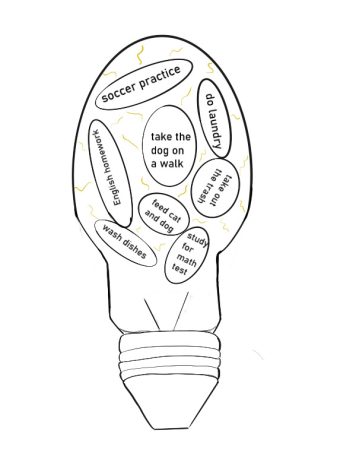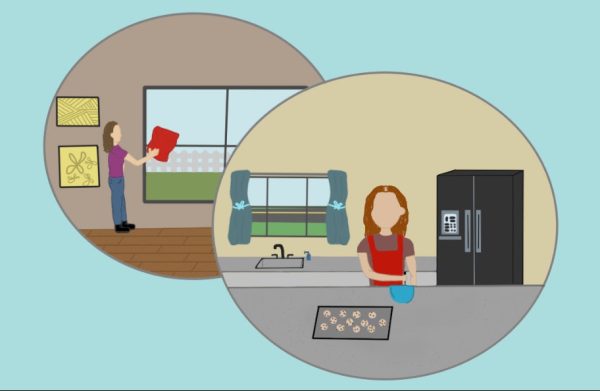Energy is key
Managing one’s energy is essential to a maintainable lifestyle
September 13, 2022

With an aim to be productive, a student opens up their planner to meticulously plan their day, squeezing in as many activities to complete as possible. In an era of multitasking and unprecedented levels of caffeine consumption, the tasks are sure to be done in one day. Though the day starts off smoothly, events take a turn for the worst as the student loses their energy and motivation needed to complete important tasks on their to-do list.
More often than not, I find myself cramming 25 hours worth of activities into a 24 hour schedule. To do this, I create a schedule with much attention to detail, using calendars, to-do lists and planners to ensure that every minute of the day is planned effectively. In a world where working 24/7 is a routine, it is often forgotten to check one’s mental state and energy, resulting in a practice that is not sustainable in the long run. Oftentimes, following my tight schedule stops me from taking care of myself as I prioritize finishing tasks on my calendar.
It is crucial to realize that time is not the only factor that must be considered when completing tasks. Though not often thought about, energy is also vital to completing tasks. “Therefore, instead of solely managing time on a calendar, I have learned that I must listen to my body and focus on managing and preserving my energy.” — Cherise Magtoto
According to Britannica, energy is defined as “the capacity for doing work”, and it is a source that must be recharged often. However, planning a schedule that is dependent on a certain time of the day can be problematic. This is because low energy levels can prevent individuals from performing a certain task at that exact time. Therefore, an individual’s schedule should be dependent on energy level. For example, the most physically or mentally demanding tasks, such as writing an essay, should be completed when an individual has the most amount of energy.
As a student with a hectic and demanding schedule, I often find myself fitting too many draining tasks on my calendar. Whether it is cramming an English essay or preparing for a Speech and Debate tournament, my energy begins to deplete. As a result, my detailed schedule becomes counterproductive when I am not able to achieve all the tasks that I set out to accomplish. To combat this issue, I have realized that creating a schedule that accommodates my energy levels and mental-wellbeing will lead me to reach my full potential in the long-run.
In the book, The Power of Full Engagement, authors Jim Loehr and Tony Schwartz explains that “every one of our thoughts, emotions and behaviors has an energy consequence, for better or for worse.” Because every task I complete takes different amounts of energy from me, I have realized that completing too many energy draining tasks is harmful to my mental and physical health.
Therefore, arranging a schedule to fit personal energy needs could be the key to being as productive and healthy as possible. Due to the fact that different activities require varying amounts of energy to complete, arranging activities in a way that takes advantage of personal highs and lows of energy will lead individuals to feeling more productive and energized in the long run.
However the path to maintaining and managing energy is not an easy feat. It requires sacrifices and self-awareness to achieve. According to an article The Power of Energy Management in the Workplace by Bobi Seredich—a speaker, author, trainer and successful entrepreneur specializing in leadership development—“the key to managing energy is to approach challenges with new and healthy energy recovery rituals.” It is important to restore my energy because that is the only way I can be as productive as possible.
However, in order to renew one’s energy, it is vital to take breaks. According to a study done by West University of Timisoara, short breaks are proven to boost energy levels. Taking breaks and listening to one’s body is essential to managing energy since physical energy is needed to endure the day. Breaks have a multitude of benefits allowing my energy to recharge and recover, and giving me the strength I need to complete difficult tasks.
Though planners and calendars can be effective in deciding what tasks need to be completed in a day, it is important to realize that our bodies run on their own time. When students begin to plan their days based on personal energy levels, that is when productivity and well-being begins to spark.











